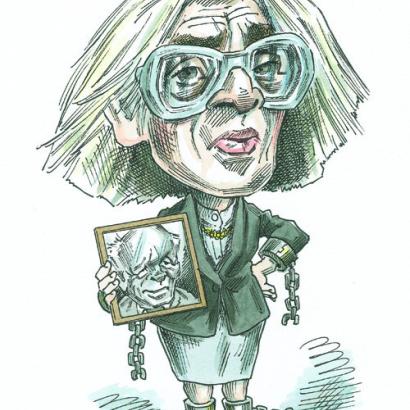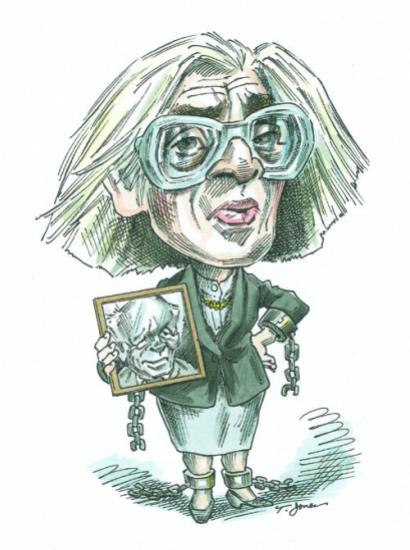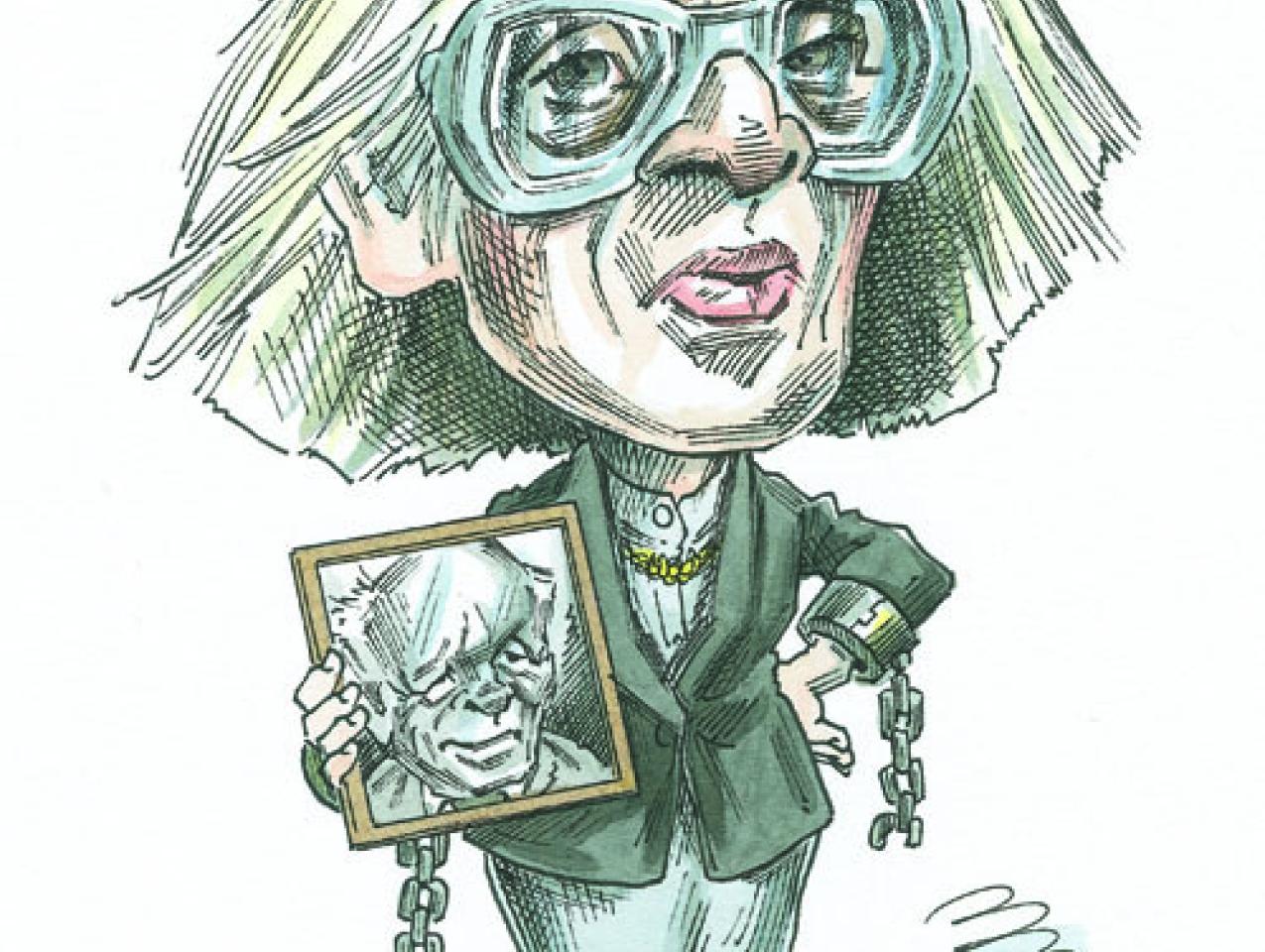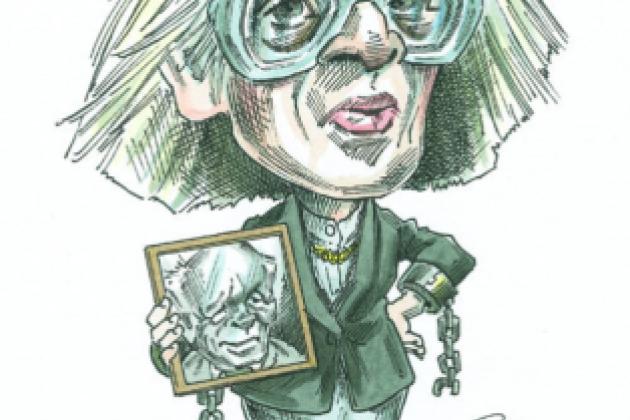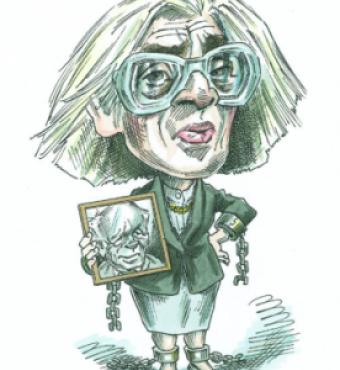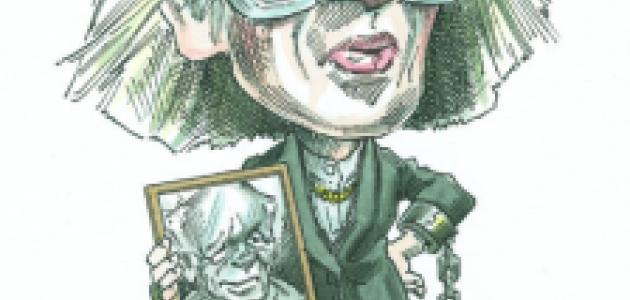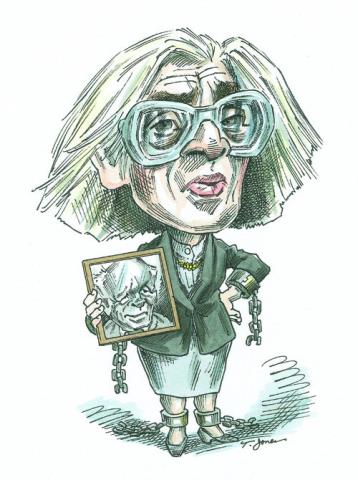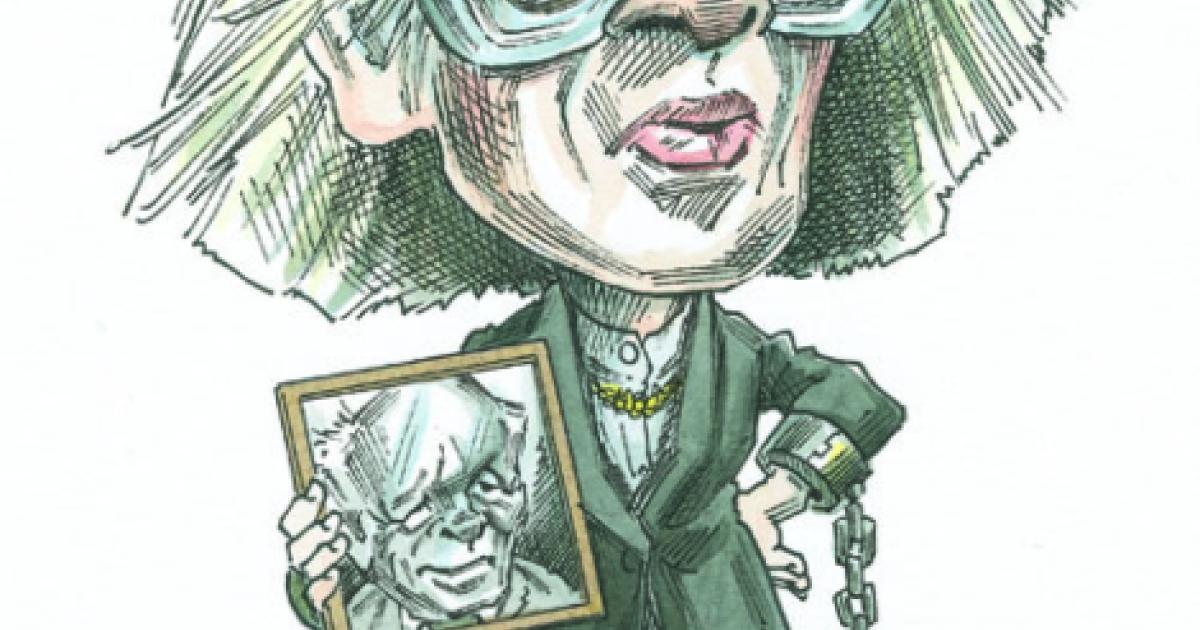- International Affairs
- US Foreign Policy
- World
- US
- Contemporary
- Law & Policy
- Civil Rights & Race
- History
In May 1980 I was detained by the KGB and given a choice: either be sentenced to many years in prison, even death, or leave the Soviet Union for good. An obvious choice for many people, perhaps, but it wasn’t so simple to me. Many of my fellow dissidents had just been arrested and many others would be arrested soon. To leave all of them would not be easy.
When I was released after a few hours, I went directly to Elena Bonner, even before I saw my wife. I needed the advice of the person whom I greatly respected, a fellow dissident and the backbone of the Moscow Helsinki Group, of which I was a part. Her advice, which sounded more like an order, was categorical: “Go. We do not need more martyrs here. You will be able to help others much better from abroad.” That was typical of Elena, for whom life and the freedom of her friends was more important than abstract ideas. That brief conversation helped me make up my mind and possibly saved my life. Soon I left the country, came to America, and continued to struggle for the freedom of my fellow dissidents until the last of them was released.
I mentioned that episode in my eulogy to Elena, delivered at her funeral in Boston. This great woman, who made a significant contribution to world freedom, died on June 18 of heart failure.
A number of biographies of Elena Bonner have been compiled, the most accurate by her daughter, Tatiana Yankelevich. Suffice to say that her life reflected the whole of Soviet history. She was born soon after the Bolshevik Revolution into the family of a top-level communist official, who was later executed by Stalin. In time her mother also was arrested and served years in labor camps. Elena spent her youth on the front during World War II, saving soldiers’ lives as a nurse. She was wounded twice. After the war she joined the Communist Party, only to become completely disillusioned with the Soviet system. She turned into a strong adversary of that system and eventually helped bring it to an end.
THE KREMLIN’S STUBBORN ENEMY
Elena Bonner was a heroic woman. For decades she withstood double pressure from the Soviet authorities, as a dissident in her own right and as the wife of dissident physicist Andrei Sakharov. Official propaganda portrayed her as the “black demon” of the naive, patriotic Russian scientist Sakharov, whom she corrupted and turned against the Soviet people. Such also was the conviction of Mikhail Gorbachev and a large part of the Soviet nomenklatura. She was a “beast in a skirt” and a “Zionist agent.” Sakharov forcefully dispelled that nonsensical propaganda and chivalrously defended his wife. Yet for her to hear those innuendos day after day, even from seemingly respectable and intelligent people, was quite a burden.
Bonner’s devotion to and respect for Sakharov was unquestionable. Until the end she saw guarding his legacy as her key mission in life. The mission was important and demanding. With her daughter’s help, she published eight volumes of works by Sakharov, who died in 1989.
Guarding Sakharov’s legacy took not only hard work but also great courage. He had acquired enormous moral authority around the world, but his positions would often differ from those of many in the American establishment, particularly on the left. Those people were not eager to see statements by Sakharov broadly publicized, and in some cases they tried to provide their own comments and interpretation of his views.
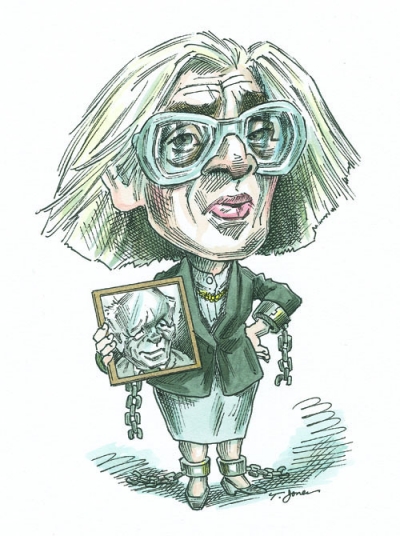
This was most conspicuous regarding Sakharov’s position on arms control. He was skeptical about arms reduction per se, and believed that only adherence to the basic principles of human rights by each country could provide a real guarantee for world peace. He was totally against unilateral U.S. disarmament. From his Soviet captivity, Sakharov courageously urged the United States to keep medium-range missiles in Europe and ICBMs on its own territory, and not to give in to pressure by the Soviets and fellow travelers in the West. Such a position did not play well with American peaceniks and the liberal left. A booklet on the peace movement published by Human Rights Watch (then Helsinki Watch) failed to properly present Sakharov’s views, instead dismissing them as the confused ideas of a poorly informed person—quite an arrogant stance to take with a man who was isolated by the secret police and had no opportunity to respond. Some peace organizations wrongly tried to portray him as a peacenik who would encourage unilateral American disarmament.
Here is where Elena Bonner made a great effort to straighten the record. She used her bully pulpit as a renowned human rights activist to deliver Sakharov’s position in its integrity. She used the same pulpit to speak her mind on many new developments in the world that occurred after Sakharov’s death. She did so openly and without compromise.
ENDURING IN THE POST-COMMUNIST WORLD
Of all her qualities, the one I valued most was her independence, the product of her intelligence and courage. Standing strong against Soviet communism until its end, speaking out in defense of freedom and human rights, was the ultimate proof of that quality. But she did not stop there. In post-communist Russia and then in the United States she continued to voice her independent opinions and challenge her opponents regardless of their party affiliation, political orientation, or importance.
Some of her fellow dissidents tired of the long struggle. They opted for a more comfortable life in post-communist Russia or in the West. They toned down their rhetoric and overlooked some of their differences with the communities of “new democrats” or human rights activists, seeking to secure a more respectable position.
Not Elena Bonner. She would continue to speak out with her frankness and power. No authority was high enough to avoid her criticism.
She challenged Gorbachev, the last leader of the Soviet Union, and made him stand up for a moment’s silence in memory of Armenians killed in Nagorno-Karabakh under his watch. About Gorbachev’s Nobel Peace Prize she said: “It is difficult to understand how such a historic mistake could occur.” Such criticism did not make her popular among Western intellectuals and leaders, who admired the Russian president.
She challenged Boris Yeltsin, the first president of post-communist Russia, over the war in Chechnya, and resigned in protest from his Human Rights Commission.
Her protests against current leader Vladimir Putin and his KGB comrades were even blunter. Eventually they led her to emigrate from Russia.
She challenged Russian academicians, intellectuals, and “new democrats” for irresponsibility and failure of nerve.
American authorities were not given a free ride, either. Of all recent presidents, only Ronald Reagan was spared her criticism.
She openly disagreed with George H. W. Bush, who tried to protect the integrity of the Soviet Union under Gorbachev’s leadership. “The West should understand that a totalitarian state cannot be destroyed by one figure,” she said. “The only thing that can accomplish this would be the newly independent republics: fifteen or more of them. Gorbachev represents the old unitary state.”
Later she would criticize his son, the second President Bush, who decided that he could trust Putin after looking into his eyes. She also spoke strongly against Bush’s alliance with Putin’s Russia during the Iraq war.
Her reaction to President Obama’s policy toward Russia was even more scathing. In July 2010, she wrote: “I am certain that the ‘reset’ declared by the U.S. administration, which in practice excludes from its relations with Russia the discussion of human rights—including the court system, the most important instrument for their defense—does not promote the development of democracy in Russia.”
In her Oslo address of 2009 she had harsh words for the whole human rights community: “It’s a question for my human rights colleagues—why doesn’t the fate of the Israeli soldier Gilad Shalit trouble you in the same way as the fate of the Guantánamo prisoners? I can find no answer except that Shalit is an Israeli soldier, Shalit is a Jew.”
Anti-Semitism was another area in which she confronted European intellectuals. In remarks at the Andrei Sakharov Prize Session of the American Physical Society, she said: “In England the first organization to call for a boycott of Israeli scholars and scientists was the teachers’ union. In Norway, the boycott of Israeli goods was an initiative of those who in the West are called intellectuals, or, by old Russian habit, intelligentsia.”
In the same remarks she also challenged environmentalists and proponents of immediate global nuclear disarmament over two other issues: the need to expand the use of nuclear energy, to which Sakharov devoted his 1977 essay “Nuclear Energy and the Freedom of the West,” and what she termed “hastiness to solve the problem of nuclear disarmament demonstrated by the new U.S. administration. Sakharov spoke of careful and gradual nuclear disarmament, of the need for both the U.S. and the USSR to keep about five hundred nuclear warheads until about 2050.”
TRUE FRIEND OF AMERICA
Bonner lived modestly. Although her impact on world politics was significant, it could have been even greater. At the end of her life, she couldn’t even get enough funding to properly operate the Andrei Sakharov Foundation, which carried out the ongoing task of publicizing the works of Sakharov.
She was not a darling of the establishment, and many officials and political activists considered her too inconvenient to deal with. Her story points to a major systemic error in U.S. foreign policy. Instead of strongly supporting such people as Elena Bonner, American foreign policy and the human rights community typically prefer people who are easy to control, who will say and do what’s expected of them. These figures typically have neither a record of standing for freedom and democracy nor any convictions to that effect. They use American support to secure a position within their country, and then turn their backs on America.
Not Elena Bonner, who truly believed in freedom and human rights, who truly shared the fundamental values of this country. She stood for them and never betrayed them. She would often disagree with the specific twists and turns of American politics, and would be quite critical when she felt that American policy had departed from its principles. But she remained true to those principles.
Such are true dissidents. Inconvenient, maybe. Independent and deeply devoted to fundamental values, certainly. Such are America’s true friends. Elena Bonner was among the people who can bring freedom and democracy to the rest of the world.








